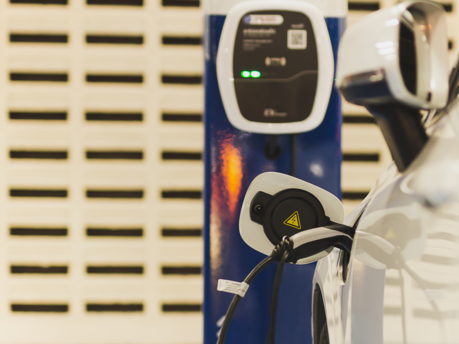What's checked on an electric car service?
Preparing Your EV for the Road
Alongside the environmental benefits of driving an electric car, there are some financial perks for you too, and that’s thanks to there being fewer moving parts under the bonnet. Not only is there less to go wrong but there are less frequent service schedules to look forward to too, particularly in the first few years of your EVs life.
As EVs are battery powered, there’s no need for the combustion engine that petrol and diesel cars rely on, which is what servicing largely revolves around for traditionally fuelled vehicles.
That being said, servicing is still a big part of your electric vehicle maintenance in order for it to keep running smoothly. Below, we explore how electric cars are serviced…
How often do electric cars need to be serviced?
First things first, how often will you be heading to a service centre for routine maintenance? Well, if you’re used to petrol or diesel, you may be pleasantly surprised, as it’s not as often as you might be used to. As an electric vehicle doesn’t need oil (there’s no real engine and therefore no engine oil), there’s no need to have the regular oil change.
There are, however, still checks to perform on your electric vehicle at certain points of its life, as it’s still an opportunity to flag up and rectify minor problems with component parts, and keep them running efficiently. Therefore, your electric vehicle will still come with a service schedule.
For example, the extremely popular Nissan Leaf requires a service every 18,000 miles or every year (whichever comes first), whilst the BMW i3 is serviced based on its condition (its on-board computer will tell you when it’s due).
Ultimately, it varies, and you’ll need to double-check the individual service schedule of the car you go for.
What is checked on an electric vehicle service?
Battery and cables
The battery and its associated electrical components are, obviously, vital to the smooth running of your vehicle, so this area is first on the list for any technician servicing an electric vehicle. The battery will be hooked up to diagnostic equipment to show any faults, and a visual inspection of the cabling will be completed to ensure they’re not damaged or perished.
Cooling system
Cooling systems aren’t exclusive to combustion engines; your EV will have one too, usually of the liquid variety and designed to stop your battery from overheating. Leaks can be detected at the routine maintenance stage, and the coolant can be topped up at this point too.
Braking system
Vital to every car, regardless of its fuel type, are the brakes. A service technician should check for wear and tear on parts such as the pads and discs, and the brake fluid should be topped up around every two years too.
Tyres and suspension
Tyres and suspension on an EV will still bear the brunt of wear and tear, so it’s important that problems are detected and dealt with before they become a real issue, or even illegal. A technician will check that your tyres are in good condition, with a tread that meets the legal minimum of 1.6mm, and ensure your suspension system is intact and hasn’t fallen victim to potholes.
Air Conditioning
Part of the in-car comfort to which we’re accustomed, it’s important that the air conditioning system is not only working correctly to keep to cool, but keep those pesky allergens out of the car too. At some stage, your EV will need a replacement air filter, just as traditionally fuelled cars would too.
Sundries
Lights, levels and wiper health are all on the service to-do list for your EV service centre; these are basics when it comes to car servicing, and EVs are no different.
How else can I protect my electric vehicle?
Allow us to briefly blow our own trumpet - by taking out an electric vehicle warranty with Warranty First of course! You get peace of mind knowing that swift action can be taken to get your electric car back on the road when the fault is covered by our electric vehicle policy.
Find out more and get a quote today.

